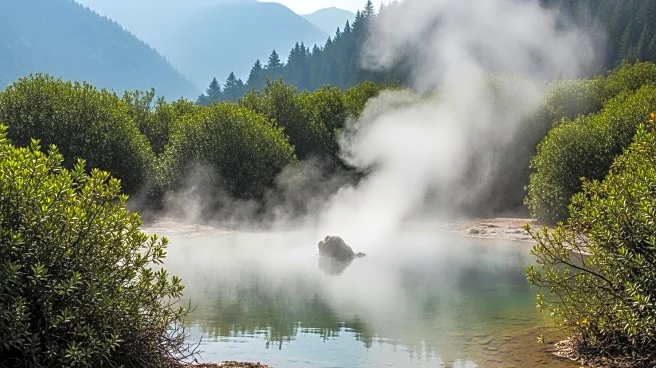What is the story about?
What's Happening?
Researchers from the Earth-Life Science Institute have uncovered insights into ancient microbial ecosystems in Japan's iron-rich hot springs. These ecosystems provide a glimpse into how life adapted during the Great Oxidation Event, a pivotal transformation in Earth's history. The study reveals how primitive life forms may have survived the introduction of oxygen, which was toxic to many anaerobic organisms.
Why It's Important?
Understanding how life adapted to early Earth conditions can offer valuable insights into the resilience and evolution of life in extreme environments. This research may inform studies on potential life forms in similar conditions elsewhere in the universe, such as Mars or icy moons. It also contributes to our understanding of Earth's biogeochemical cycles and the adaptability of microbial life.
What's Next?
Further research may explore unknown metabolic pathways and the role of sulfur cycling in microbial adaptation. Scientists may investigate similar environments on other planets to assess the potential for life beyond Earth.
Beyond the Headlines
The study highlights the importance of interdisciplinary research in uncovering Earth's ancient history and the potential for life in extreme conditions. It underscores the interconnectedness of Earth's ecosystems and the ongoing quest to understand life's origins.

















